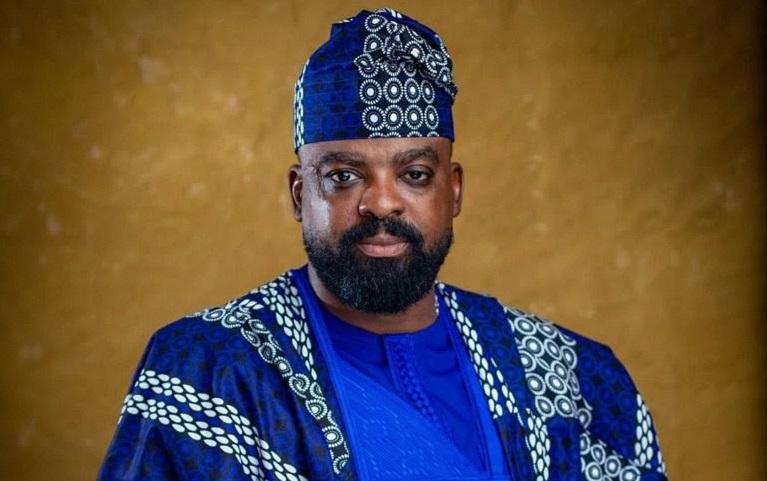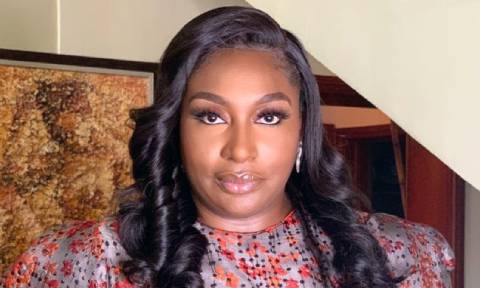Veteran film maker and writer, Chief Eddie Ugbomah(MFR) will be 70 in October. Already, lots of activities have been lined up to mark this milestone. A pioneer film makers, Ugbomah’s contributions to the growth of film industry in the country can never be wiped out in the annals of the movie industry.
At the peak of his career, he produced “Oyenusi”, a film that highlighted the life and times of the armed robbery king pin and “Death of a Black President”, which centred on the coup that killed the former military Head state, General Murtala Mohammed.
In this thrilling encounter, the die-hard creative spirit speaks on the activities lined up for his 70th birthday. In addition he situates the place of Hubert Ogunde in the development of the film industry in Nigeria amongst other issues. It’s controversial.
Hear him….
The journey so far
So far so good, the journey have been memorable. I’m a very happy man and my friends can attest to this claim. But generally, life has not been easy given the dwindling economic situation in the country. Few days ago was exactly eight years my wife passed on.
I’m a bachelor at 70 years of age, but I’m not searching. I’m a writer and a veteran film maker. I was forced into the movie industry in 1959 by Chadden Houston, the film maker that produced the movie “Ben Hog.”
Late Nnamdi Azikiwe invited him to be part of the independence party at Glover Memorial hall, Lagos. But instead of this white film maker to acknowledge the effort made by the government of that era to bring him to Nigeria, he resorted to making a derogatory remark saying, “ as big as Nigeria is, the country had no film industry of its own and that he was invite all the way from Hollywood to come and premiere his movie here.”
Faced with this kind of unfair comment, and out of anger, I shouted from the crowd, “Oyingbo you would never come to this country again and I’m going to become a film maker.” That was it. From that moment, I resolved within myself to go into film making.
That was what pushed me into the business of film making. Also, watching Tarzan in my days where he would command a lion, elephant and other dangerous animals and the devour the black people. I would say to myself, here was a white man who commanded the animals and they obeyed him.
I was inspired the more. Also watching Eddie Murphy in a movie, called “Back to Baytown” where he killed over 500 Japanese soldiers in a trench was inspiring. I was convinced that the screen remains a powerful weapon to talk to the people, brainwash them and propagate the societal values. I saw the opportunity as the only way to fight against the whites’ influence on our film industry.
At that stage, I made up my mind to go into the industry to dislodge the foreign influence in our motion picture industry. I’m certain that I was one of the pioneers who helped to get rid of the influx of foreign films in the country.
The place of Ogunde in the history of Nigerian theatre
This is the big mistake most of us are making. When they talk of the theatre in Nigeria, the first name that comes to the people’s mind would be Hubert Ogunde. But before Ogunde emerged in the scene, I have already produced my eight films. I was the person who encouraged Ogunde to produce “Aye(1&2)” and in fact, without my intervention the film wouldn’t have seen the light of day.
He co-produced the film with a foreigner, and during that period, he was stranded in London where he shot the film with crew.
I was the one who guaranteed for “Aye” to be released into the market, so when you are talking about film culture in Nigeria, mention names like, Ola Balogun, Ladi Ladipo, Eddie Ugbomah before Ogunde would come into the picture. Ogunde made only one hit “Aye”. Does that make him the “doyen of theatre” in the country.
When I shot , “Oyenusi”, and the “Boy is Good” I warned the nation concerning the advent of Advance fee fraud operators now known as 419 in 1978. I also shot another film, “Oil Doom” which predicted the crisis in the oil sector as far back as 1979. Based on my previous movies, people started appreciating Nigerian films. It was after I produced
“Black President” and the ‘Mask” that Ogunde lifted the theatre into celluloid. He took his crowd from the stage into celluloid and thereby murdered the stage. I was strictly a film maker.
Fortunately, in those good old days, we were like one family- Ogunde, Ade Love and myself.
However, what people have failed to realise is the fact that most of my contemporaries have either passed on, or were no longer in business. The saw producing movies as something that was tough and therefore abandoned the industry, but till date, I’m still shooting movies. Right now, I have two movies which I refused to give to the marketers. They are “Black Gold” which was previewed in Vanguard and “Desert Warrior” that chronicles how the Fulanis entered the country.
Also, I’m working on two new movies which explore the activities of the senators titled “Cabalog” and “Treason”. I hope to premiere about two to three movies during my 70th birthday celebration billed for October. Also plans are under way to release all my films on celluloid.
I have printed more copies of the films in London, and the copies are expected to arrive the country this month. I’m also making arrangements to tour the cinemas in the country with my old films and thereafter, I hope to revisit my
“Aba Women Riot” film. I have over seventeen films that are not in the home video format which I hope to release into the market soonest. I’m absolutely happy for what I’m doing today. I shot my last movie in 2007/2008.
The many wrongs of Nollywood
At the moment Nollywood is on the downward, and I’m sure there is a future for the industry provided the operators realises their mistakes and learn to correct them. The world have been waiting for the emergence of the Nigerian cinemas. Right now, there’s a kind of senseless competition pervading the industry from the guilds, associations through the regulatory bodies.
During the good old days, our films dealt with educational values of society while also entertaining. But what obtains today is a situation where the films only succeed in entertaining the people without educating them. The films are not contributing through their storylines in any aspect of our socio-cultural development.
However, I still commend the practitioners while taking into cognisance the fact that they are working in an unfriendly environment, where there’s poor technicality, no good location and lack of sponsorship.


















